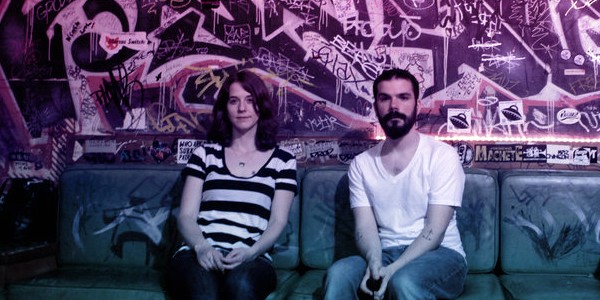
What's Wrong With This Picture?
"The dream of the Internet is alive in Portland," reports Ryan Gantz at the Verge.
It might be true that a dream of the Internet is alive in the Pacific Northwest. But the dream? Is it even possible for there to be one dream of the Internet?
Gantz was referring to the XOXO Festival, a recent conference in Portland, Ore., that brought together maker culture, technology and a love of the Internet. I got excited when I first read co-founder Andy Baio’s announcement about the event. His description — “a festival … bringing together artists and toolmakers to celebrate disruptive creativity” — was fun, inspiring and Internet-y. And from all accounts, it appears that the event Baio and company created was exactly that.
Baio tweeted after the event:
I feel like crying. Shaking a little. This is better than we’d hoped and dreamed, because of YOU. #xoxofest
— Andy Baio (@waxpancake) September 15, 2012
But let’s get back to the idea about “the dream of the Internet.” Gantz writes that Baio and festival co-founder Andy McMillan “promised to create the kind of conference they'd always wanted for attend — a conference for people who care about the Internet.” To pull that off, Baio and McMillan created a conference that appealed to a very specific monoculture, and that monoculture responded with love and adoration.
But I’m worried that XOXO didn’t include the many kinds of people who deeply care about — and depend on, and fight to protect — the Internet. For example, this is what the speakers looked like. Notice the common denominator?
New York Times technology writer Jenna Wortham also attended the XOXO Festival. Like Gantz, she was impressed. But she too had concerns about inclusiveness:
Now that a new economy, a new playbook for making interesting content and projects, is beginning to form, how can we ensure that everyone, not just people with the know-how and social ties to help support it, benefit from it?
Why does it matter that this group of presenters was an entirely white group of youngish people who are ambassadors of a maker-culture that consumes white, liberal enclaves around the country, from Portland to Austin to Williamsburg?
It matters because this conference was about a vision of the Internet. Not “an” Internet. The Internet. But if the group you’ve convened to talk about the Internet contains little to no diversity, that vision is, well, blurry.
Yes, the Internet has provided a platform for a new generation of artists and creators to make, promote and sell their work, and to give those makers far more control over their work than ever before. We should celebrate that.
But the Internet has also become the dominant communications medium of our time, one that journalists, activists and dissidents use to expose the truth here in the U.S. and around the world.
Access to information is powerful stuff. But when you’re saturated with images of people of color as criminals, for example, you depend on Internet access to get real information, to empower yourself, to get educated, to learn how to solve the problem of structural inequality.
For millions of people, “the dream of the Internet” is a dream of social equality and the right to speak freely without fear of censorship, in addition to the freedom to innovate and shake up existing industries.
So how can we make the technology world more inclusive? Include people without the aforementioned “know-how and social ties” into the conversation. Make the conversations more diverse, which means not only including brown and black people, more women and the LGBT community, but also those who simply have different dreams about the Internet. The Internet is a big place, and there are as many dreams about it as there are users of it.
Photo from the XOXO Festival site